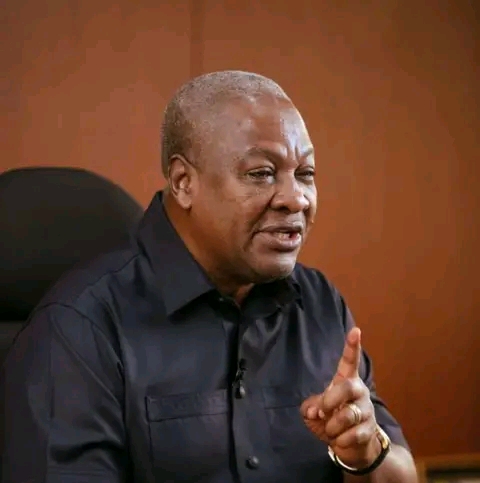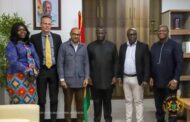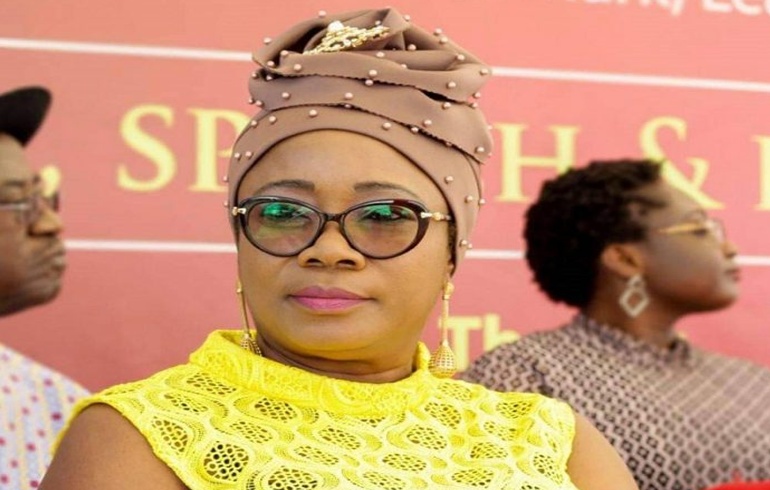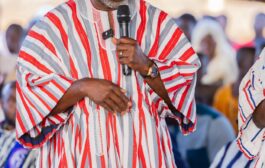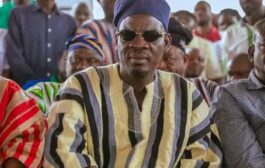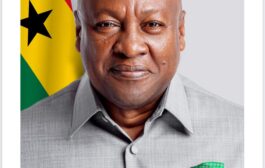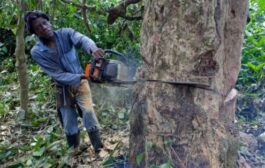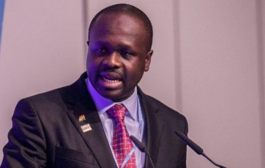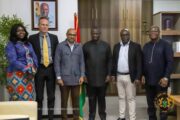Full text by John Mahama on “CREATING A NEW PARADIGM OF TRADE BETWEEN THE GLOBAL NORTH AND THE GLOBAL SOUTH”
John Mahama’s keynote speech at the 2023 Humanity Summit, Faro, Portugal.
I want to begin with a story. Let’s call it “A Tale of Two Cities.”
Accra is the capital city of Ghana, which used to be a British colony.
Lomé is the capital city of Togo, which used to be a French colony.
It takes approximately three-and-a-half to four hours to travel by road from one city to the other.
Not so long ago — and by that, I mean within my lifetime — if you mailed a letter from Accra to someone in Lomé, that letter would first be sent directly to London for processing. Then, next, it would be sent to Paris, where it would also be processed before it would be forwarded to Togo and delivered to its recipient in Lomé.
Until not so long ago, the same thing used to be true of telephone calls and air travel between any two countries on the African continent. They would all be routed, first, through a colonial country before reaching their intended destination.
It seems silly and illogical. And yet, that was the norm, the standard, the way things were done.
I have been asked to speak with you this morning about creating a new trade paradigm between the Global North and the Global South. What would that look like? What would it entail? How would it be implemented?
Let me point out very quickly that the labels “Global North” and “Global South” are misnomers because Australia, considered part of the Global North, is pretty far South, and most of Asia, considered part of the Global South, is East.
So, the labels aren’t actually indications of cardinal points; they are illusory, simply a pleasant and inoffensive way to identify nations that are considered developed and thus hold power and those that are not and thus do not. This is something that should not be overlooked or forgotten. I will speak more about it in a short while.
For this address, I will concentrate primarily on the continent of Africa, which contains 54 of the 78 nations that make up the Global South. I began with that story, the tale of two cities, because even though, on its surface, it has nothing to do with trade, at its core, it brings into sharp focus many of the impositions, limitations, and forced dependencies that were created by the “scramble for Africa.”
It is only possible to create a new paradigm by first understanding the current one. And it is only possible to understand the current paradigm with a full comprehension of the foundation upon which it was built. A foundation that was reliant upon the acquisition and maintenance of complete power.
It is common knowledge that a divide-and-conquer strategy was executed within the individual colonised territories. But we don’t often consider that the same intentional or consequential strategy was set in motion on the continent as a whole.
There were various colonial powers in many places and at different times, drawing artificial borders that had no consideration for any of the pre-existing social structures or alliances.
Take Ghana and Togo, for example. They have in common several ethnic groups because the border splits the traditional terrain of those peoples between the two countries. And depending on which side of the divide they were on, those groups’ languages, cultures, and customs were shaped in drastically different ways.
The Germans and the French colonised Togo; Ghana was colonised by the British. The Portuguese, enterprising navigators and explorers, were the first Europeans in that region and exerted tremendous influence.
The point I am making is that we Africans, except Ethiopia and Liberia, have been under the consistent authority of Europeans, who were not of our land for several centuries.
And yet, we do Africa a tremendous disservice to centre our stories around colonisation, to ignore or dismiss the sophistication of its precolonial empires and the success of their trade and commerce.
The Mali Empire, which existed from the 12th to the 17th centuries, stretched from as far North as modern-day Mauritania, South as Burkina Faso, East as modern-day Niger, and West as the Gambian coast. A famously rich empire gained most of its wealth from trade. They traded throughout North Africa and into the Mediterranean lands.
At the height of the empire’s power, it was ruled by Mansa Musa, who is said to be the wealthiest man in history. Some sources have estimated his wealth to be as much as the equivalent of 400 billion modern US dollars.
The Aksumite Empire in East Africa also exported gold and ivory throughout East and North Africa, Southern Saudi Arabia, and Yemen. The Great Zimbabwe Kingdom traded with China, Persia, and the Arab world. I could go on and on; there were many notable empires and kingdoms from the top of the continent to the bottom.
While we should not centre our stories around colonialism, we cannot deny how it has shaped our stories into this present-day narrative of Africa as poor, politically incompetent, eternally developing, incapable of handling its own affairs…a place full of shithole countries.
The African continent has been so misrepresented and misjudged that it is often difficult to have constructive conversations about it without ensuring that everyone involved has an accurate purview.
So, let’s agree on this: when it comes to African nations, sovereignty and independence, though often used interchangeably, are not synonymous.
Regarding sovereignty, the first sub-Saharan nation to liberate itself from colonial rule, Ghana, turned 65 earlier this year, on March 6th, making it a year older than me. And even though my children probably think of me as ancient, I do not consider myself that pretty old.
The last African nation to gain its freedom from colonial rule was Namibia in 1990, making it 33, younger than many of you in the audience today. You don’t need to be a historian to realise that these stretches of time are brief in the larger scheme of things, filling anywhere between a paragraph and a page in a textbook.
And though we manage our governmental affairs, it is not without impositions and interference from the so-called Global North. In many significant ways, we are not independent, certainly not, when it comes to trade.
The world system has made Africa out to be the supplier of raw materials. We have been placed as the primary product exporters and finished goods importers. I worded this the way I did—placed in the position of being—because African countries hold little to no power in any part of the process.
Through their trade and stock exchanges, the Global North determines the prices for the raw materials. African countries supply the Global North with rare earth minerals and other products and natural resources such as timber, lithium, cobalt, copper, bauxite, manganese, gold, oil, cocoa, tea, coffee, and spices.
The Global North processes these items to make furniture, jewellery, computers, mobile phones, cars, and chocolate bars and then sells them back to us at prices they determine.
The Global North owns the shipping lines. The Global North controls the trade channels, and the routes are between North and South, not within Africa.
Let’s return to the issue of development and power. If we are considered developing nations, how, within this paradigm, can we ever develop? Or are we, as the late Pan-Africanist historian Dr Walter Rodney posited, woefully underdeveloped within this paradigm?
One of the hallmark issues in every analysis of the relationship between the Global North and the Global South is power. And it’s an issue that has its roots in colonialism.
In their book “A New Weave on Power, People, and Politics,” social justice advocate Lisa VeneKlasen and author Valerie Miller explore the concept of power through four different expressions.
These expressions of power offer tremendous insight into the past relationship between the Global North and the Global South and vital clues on what is necessary to ensure the success of the new paradigms already being built.
One expression—the power over—adequately describes the dynamic of colonisation, whereby one group exerts power over another.
Another expression—the power to—is what currently exists. Though the Global South comprises sovereign nations because we have economic dependence on the Global North, they hold the power to dictate the terms of engagement, which will always be favourable to them.
A third expression—the power within—is one that African nations are already forging. Most African countries have ratified the African Continental Free Trade Area protocols.
This common-sense instrument for removing trade barriers between African countries is expected to boost trade among those countries from a paltry 11% to about 50% in the next few decades.
Switzerland is known for chocolate, but does Switzerland even grow cocoa? Imagine Ghana and Cote d’Ivoire, the largest cocoa exporters, able to export their brands of chocolate widely.
English Breakfast Tea is a popular breakfast beverage all over the world. But does England even grow tea? Imagine if Kenya, one of the largest exporters of tea and coffee, could export their brands worldwide.
The power within is also a reclamation of a consciousness that has been with us all along. It’s the consciousness of Mansa Musa and the great kingdoms. It is the consciousness of Nana Yaa Asantewaa and those who fought in the war she led, those involved in the Chimurenga, as well as the Mau Mau Resistance movements, and people like Nelson Mandela, Samora Machel, Agostinho Neto.
It is the consciousness of our dignity, inherent worth, and limitless possibilities.
Once Africa has established the power within—that is to say, once we have empowered ourselves—we will then be in the position, insofar as trade is concerned, to negotiate with the Global North the fourth expression of power—the power with— and that is a relationship based on mutual respect, cooperation, and decree.
Only then can we honestly say that a new paradigm has been created?
In conclusion, I would like to revisit the story of Lomè and Accra, that tale of two cities. Though it was once, not so long ago, the norm to route mail, phone calls, and travel from one African country to another through Europe, that is no longer the case—at least not with mail and phone calls…we still have a way to go with air travel, but we are getting there.
Contrary to the constant barrage of pessimistic news and negative commentary about the African continent, much progress has been made. And it will continue to be made. Look at what we have already accomplished. Moreover, time and technological advances are on our side.
Still, more is needed. We also need the determination and momentum that stems from solidarity. The sort of solidarity that broke the chains of colonialism in rapid succession—one country after another, after another, after another—like dominoes falling. The kind of solidarity that recognises us as one united force, one continent of wonderfully diverse people whose destinies are intertwined.
Thank you so much for the invitation to be here today.
Thank you so much for your time and kind attention.
Source:Mybrytfmonline.com



